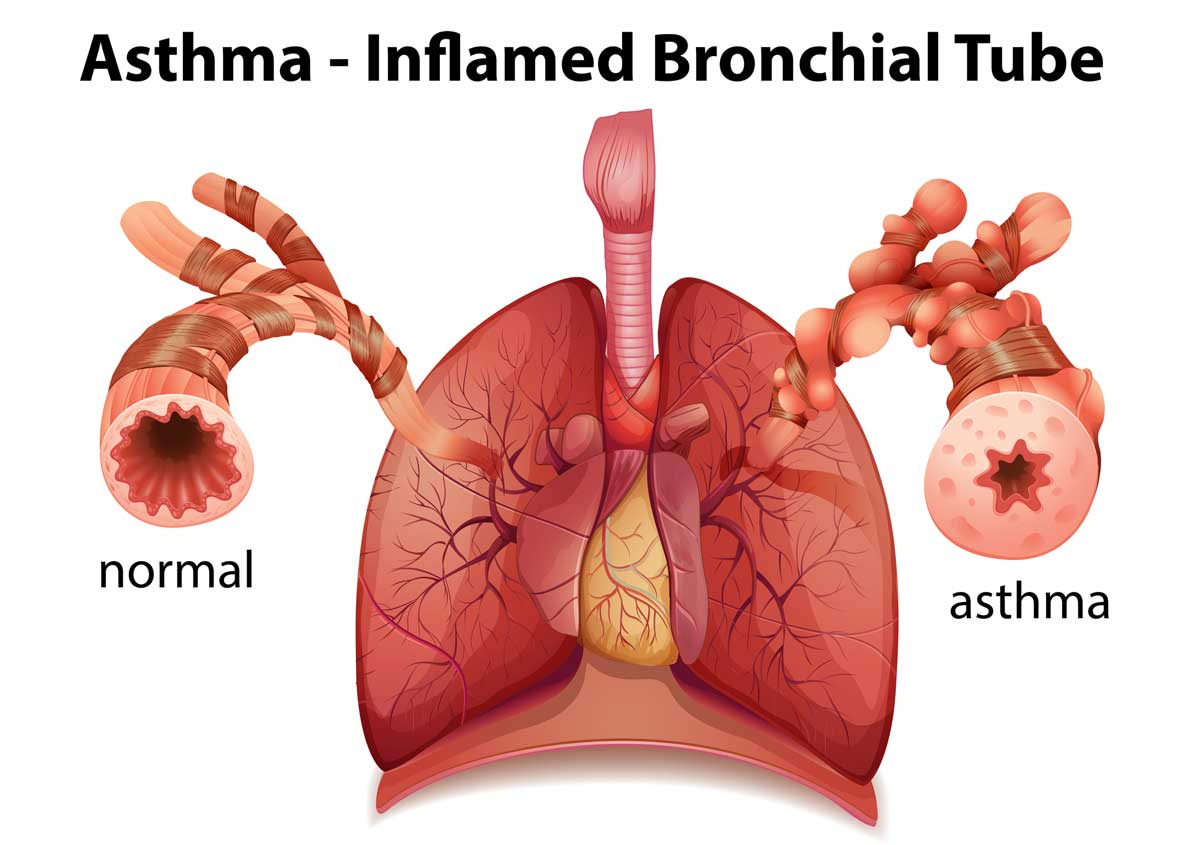Common asthmatic symptoms for Crystal Lake residents

The underlying cause of asthma can often be difficult to pinpoint, or even be unknown. For most, asthma is the culmination of inherited risk factors and triggers within a person’s environment. Asthma is considered a genetic condition, so children whose parents suffer from asthma are at an increased risk for developing it.
Asthmatic symptoms can often be grouped into the following categories:
- Allergens – Almost half of adults with asthma can link the condition to allergies, most of which developed during their childhood. For patients with this type of asthma, their immune system is triggered by inhalation of specific allergens. Some of the most common are: dust mites, pet dander, mold, pollen, and exposure to cockroaches.
- Irritants – Asthma can be caused or irritated by inhaled substances such chemicals, air pollution, or second hand smoke from cigarettes.
- Infections – Certain viral or bacterial infections can induce or worsen an asthma attack.
- Gender – Before puberty, asthma is more common in males. It becomes more common in females during adulthood. Hormonal fluctuations may play a role in asthma symptoms in women.
- Ethnicity – African-Americans have the highest rate of asthma.
- Obesity – There have been studies linking asthma in patients who are obese or who have a BMI over 25.
Some of the most common symptoms from asthma are:
- Wheezing
- Shortness of Breath
- Coughing
- Chest pain or tightness
- Faster than normal heart rate
- Sweating
Because asthma is a chronic condition that varies in severity, not everyone experiences symptoms the same. Some patients may have them all, and some may experience long symptom-free periods. Asthmatic symptoms can also vary from one episode to the next.
Some of the early warning sides of an asthma attack or episode include an increase in coughing, especially in the evening, shortness of breath, feeling weak after exercising, sings of the common cold (sneeze, runny nose, congestion), and difficulty sleeping.
Symptoms of a life threatening asthma episode include severe wheezing, inability to exhale properly, rapid breaths, chest pain, anxiety, sweatiness, pale face, or blue lips. If you have any of these symptoms, you should seek medical help immediately.
If you feel like you may have asthma, call us at Advanced Allergy & Asthma Associates today to schedule a consultation. We are experts in helping patients control symptoms and regain control of their lives. We have offices in Elgin and Crystal Lake to help serve all of our patients.
Share this Article
Back to Asthma Page








